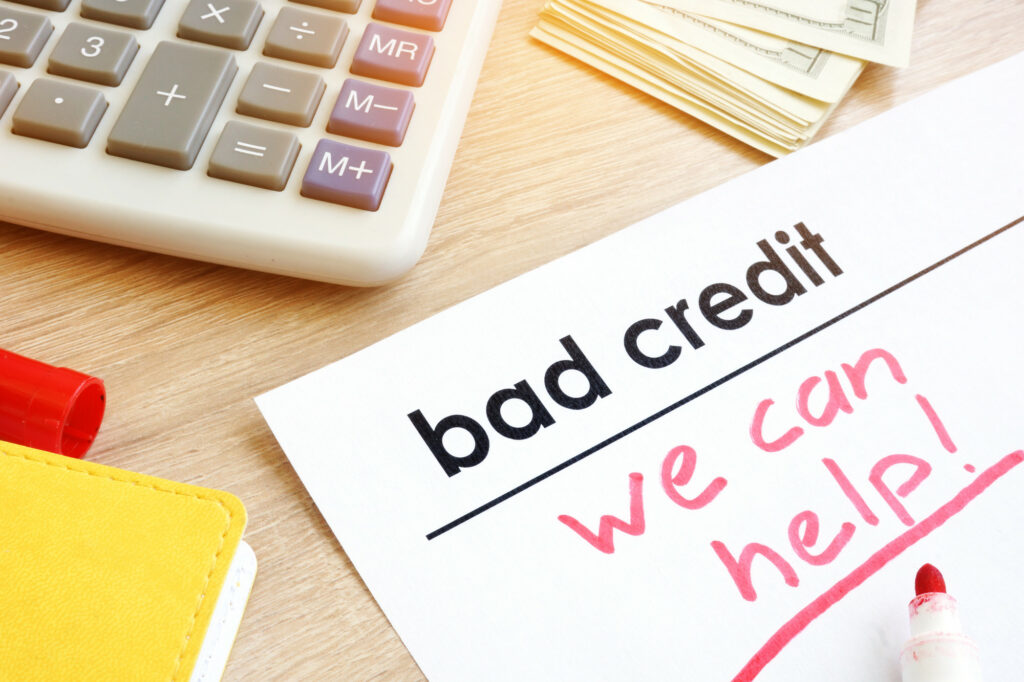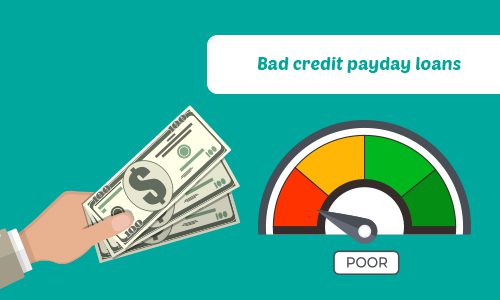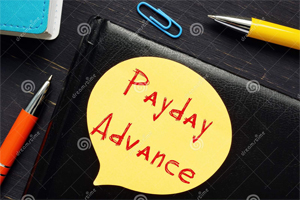Are you in need of quick cash to finance all unexpected expenses, even with bad credit scores? Many financial institutions are reluctant to lend loans; similarly, many borrowers are hesitant to apply for bad credit ratings. They are well aware that their applications will be rejected.
However, this is not the case with us. We care about our customers, and our direct lenders do not want any borrowers to go barehanded.
If you also have poor credit and need a loan, read the article below and apply without wasting a single moment. We will try our best to finance your bad credit payday loans with guaranteed approval.

Payday Bad Credit Loan
Traditional lenders consider your credit history before finalizing a loan agreement with borrowers. However, with time, many things have changed now. Before getting deep into what bad credit payday loans are, let’s understand the bad credit score.
Bad Credit Scores
A credit score is assigned by credit bureaus depending upon your performance while meeting the financial deadline. It reveals whether you’re trustworthy or not and also predicts your creditworthiness. FICO is considered an authentic source for credit scores.
To check your creditworthiness, please refer to the chart below.
| Credit Score Range | Comment |
|---|---|
| 300 – 580 | Poor |
| 581- 670 | Fair |
| 671 – 740 | Good |
| 741 – 800 | Very Good |
| 801 – 850 | Exceptional |
If you have a good credit rating, no one will stop you from getting any loan. However, the problem arises for people with poor credit history.
Payday Loans
Now, come to the second part – payday loans. Payday is short term unsecured loan payable till your next paycheck. These are payable in a shorter period within a month. The borrower needs to pay the whole amount along with the fee for the loan. Payday is also known as instant loans, cash advances, quick loans and fast loans, etc.
Combining two
When a lender grants you payday loans with the slightest consideration of credit history, it is a bad credit payday loan. Our direct lenders offer such loans to meet immediate expanses.
Reasons For Credit Checking
Banks and many other financial institutions perform credit checks to evaluate your attitude and ability to repay the loan. Through credit scores, they can assess risks for their own money. Usually, people with poor credit scores do get loans at higher interest rates.
However, in most cases, many institutions deny processing loan requests. However, even if you have a bad credit history, you won’t be disappointed by us. Our lenders perform a soft credit inquiry to verify your loan request. Our lenders have specific criteria and particular requirements to examine your repayment abilities than hard credit checking.
Start an Application for Bad credit payday loans with guaranteed approval
Check If you are eligible
Before initiating your application process, first, check whether you are eligible for the loan or not. Does the question arise how you will check it? Simply speaking, just checklist the below criteria.
- You should be an adult as per US laws – above 18
- You should be financially independent means carrying a salary of $1000
- You shouldn’t be a part of any military service
- You should have an active bank account
Initiate the process
If you are eligible for the loan, move ahead. Start a loan application. Our online payday loan is simple to process and easy to apply. What you need are just a few documents.
- Click the green button below or click APPLY FOR QUICK CASH LOANS
- Enter the loan amount and the loan purpose
- Fill all the required fields with accurate information
Now, before submission, the site will be required a few more details like your documents. Just click pictures from your device and upload. After uploading all necessary documents as personal, professional and bank details, submit the form.
Agree to terms
Once you submit the form, we will take it to multiple lenders. One of them will then approve your application and let you know through the email address or pop up on our portal.
The lender then will send you a loan agreement containing all the details as your approved amount, the loan fee, interest rate, Annual percentage rate applied to loan interest, repayment modes and schedules and so on. You won’t get approval until and unless you agree to the terms.
Get money
After finalizing a contract with the lender, you will get money deposited into your bank account hours after approval. However, not only us but your financial institution is also involved in the process. So, you will withdraw money only when the bank allows it. It usually takes 2 days for cash clearance.
Our tech approved digital system won’t be required many hours to wait and many days for approval. We are just a few seconds away. You will get loan approval in 1 business day.

Advantages of Bad Credit Payday Loans
From an exhaustive list, some of the perks and privileges of bad credit loans are:
- You can avail of these loans even with a low credit rating.
- Our loan range is between $100-$2500, which is quite enough to meet emergencies.
- You can spend these loans anywhere, anytime, regardless of any approval.
Reliability of Our Online System
Traditionally, every borrower wasted plenty of time in the hectic procedures of loan approval. However, a revolutionary change through digital technologies has also transformed the lending systems.
Some of the significant benefits you would avail through our website are:
- Our website is open 24/7. You can use it anytime, even on weekends.
- The application process is simple, requiring no more than 10 minutes to apply for the loan.
- The procedure of our online payday loans is easy to process. No faxing is required.
- With a single application, you can connect with a network of multiple lenders.
- You will get money deposited into the bank account hours after approval.
Other Bad Credit Loans
Secured Loans
Secured loans require collateral, an item containing monetary worth, to be kept with the lender. In case if you are unable to pay the loan, that item will be repossessed by the lender. Some of the famously secured loans are title loans and car shop loans.
- Title loans require cars to keep as collateral.
- Pawn shop lenders grant you cash advance correlates to the value of an item you are keeping with the lender.
Unsecured Loans
Unsecured loans do not require any collateral or hard credit check before granting a loan. These are also short term loans payable at the maturity date.
Besides Payday loans, another most critical unsecured loan is installment loans. Both are part of a personal loan and are taken for a shorter period of time. Installment loans are not entirely paid on the date of maturity. Instead, one can pay in a series of weekly or monthly payments. Further, bad credit personal loans are also short term financing taken to meet immediate expenses.

Bad Credit Loans Guaranteed Approval
Let us be clear. No one can guarantee 100% success anywhere in any sector of the world. We always warn our borrowers from any lender claiming a 100% guarantee. As far as we are concerned, we will try our best for your loan approval. You have high chances with us; the only reason is that we try our best to get your application approved by our direct lenders even if you have bad credit scores.
Improving chances for loan approval
Many people questions what if they are rejected? First of all, in our online system, you are not sending applications to one or two but hundreds of lenders. Think yourself, is this possible to be rejected by standing around many?
Secondly, we always advise our borrowers NOT TO MISREPRESENT their information. Generally, several people were rejected when they couldn’t fulfil any of the above factors of “eligibility criteria” Otherwise, there are almost negligible chances.
FAQs
Conclusion
No doubt, bad credit payday loans are helping many to overcome financial irregularities if arising urgently. We are also trying our best to satisfy every borrower, even coming with bad credit scores. If you also have any financial difficulty, start your application. Your lender will fund your loan as soon as the next business day.




